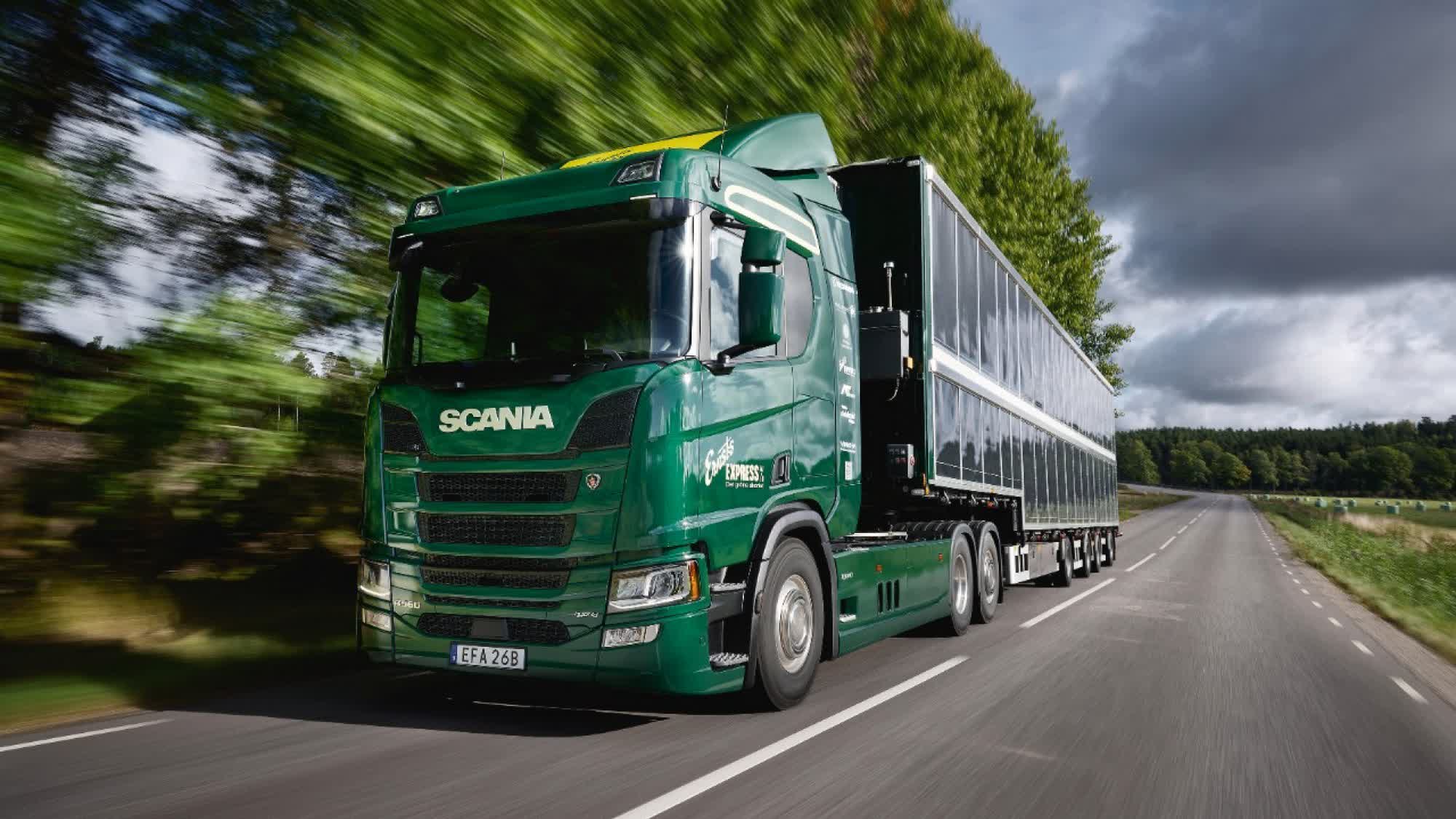What just happened? Swedish truck maker Scania last week unveiled a unique hybrid solar-powered truck. The vehicle is now being tested on public roads in Sweden as part of a two-year research collaboration between Scania, Uppsala University, Eksjö Maskin & Truck, Midsummer, Ernsts Express, and Dalakraft.

In a press release, the company said that the plug-in hybrid truck has a 560hp motor, and comes with an 18m trailer covered in new lightweight tandem solar panels, which generate the vehicle's electrical propulsion. More than 100sq m of space on the trailer is covered by the solar panels that include Midsummer's new perovskite solar cells, which are said to generate twice as much energy as traditional solar cells. Scania is claiming that this is the first time a truck of this size is being powered by electricity generated from solar panels.
The truck is part of a research project that's aiming to develop solar-powered trucks with low climate impact and is partly funded by the Swedish government agency for innovation, Vinnova. Towards that end, it will help researchers study the impact of renewable energy vehicles on the environment and how they can reduce overall carbon emissions in the transportation sector.
According to Scania, the solar cells in the truck produce a maximum efficiency of 13.2 kWp (kilowatt peak). For those wondering, the vehicle carries a total of 300kWh of batteries on board, including 100kWh on the truck and 200kWh in the trailer. Scania claims that the solar energy generated by these panels can account for up to 5,000km of range annually in Sweden, but in sunnier countries like Spain, that could even double to around 10,000km.
Asked why the project is focused on Sweden despite the fact that the country is not known for round-the-year sunshine, Eric Falkgrim, a technology leader at Scania's Research and Innovation department and the Project Manager for the solar-powered truck, said that the company specifically wanted to see the viability of such a project in the less sunny and somewhat darker conditions in Scandinavia.
The use of solar energy in automobiles is still a long way away from becoming mainstream, but if it does happen, it is expected to significantly decrease automobile emissions. As of today, the vast majority of vehicles on our roads come with internal combustion engines that use fossil fuels to generate power. Even EVs derive electricity from conventional sources, which often include thermal power that comes from burning coal. In addition to saving the environment, electrification from renewable energy could also greatly reduce fuel costs, which have increased steadily in recent years.
https://www.techspot.com/news/100049-world-first-solar-powered-hybrid-truck-tested-public.html